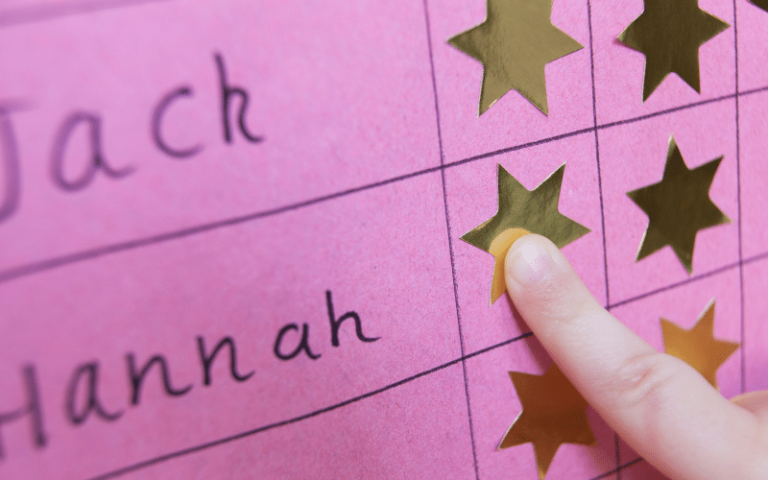What Is the Unconditioned Response in Psychology?
In classical conditioning, the unconditioned response is the natural, automatic reaction that is triggered by the unconditioned stimulus. It occurs unconditionally, which means it happens without having to go through any prior learning. For example, if you hear a loud, sudden noise, you might automatically startle. That natural reaction is the unconditioned response. You don’t…

In classical conditioning, the unconditioned response is the natural, automatic reaction that is triggered by the unconditioned stimulus. It occurs unconditionally, which means it happens without having to go through any prior learning.
For example, if you hear a loud, sudden noise, you might automatically startle. That natural reaction is the unconditioned response. You don’t have to learn how to do it. It just happens automatically.
Key Takeaways:
- The unconditioned response (UCR) is an innate, reflexive reaction triggered by an unconditioned stimulus (UCS).
- It occurs naturally without prior learning or conditioning.
- The strength and nature of the UCR can vary depending on the individual and the specific stimulus.
- The UCR is necessary in classical conditioning since it serves as the basis for developing conditioned responses.
Unconditioned Response in Classical Conditioning
Classical conditioning is a type of learning that occurs through the formation of association. Using this type of learning, people form an association between a stimulus and a response.
A naturally occurring stimulus (aka, the unconditioned stimulus) is paired with a neutral stimulus. With repeated pairings, the previously neutral stimulus begins to provoke the response, at which point the unconditioned response becomes known as the conditioned response.
Here’s how it works:
- Before conditioning, an unconditioned stimulus automatically causes an unconditioned response whenever it is presented.
- During the conditioning process, a neutral stimulus is paired with the unconditioned stimulus.
- Repeated pairings lead to an association between the unconditioned stimlus and the neutral stimulus, so the neutral stimulus starts to trigger the same response
- After the association develops, the neutral stimulus is called the conditioned stimulus and the response that it triggers is called the conditioned response
Examples of the Unconditioned Response
Some examples of an unconditioned response include:
- Startling in response to a loud noise
- Feeling hungry when you smell food
- Pulling your finger back after you accidentally touch a hot pan
- Covering your eyes in response to a bright light
- Feeling sick if you eat something that has been spoiled or contaminated
- Feeling queasy if you smell something terrible
- Flinching when you feel a shock
- Wincing when you stub your toe
In each of these examples, the unconditioned response occurs automatically in response to the unconditioned stimulus. You don’t need to think about or learn how to do it.
Unconditioned responses are reflexes that happen naturally when a person is born. Such responses don’t require you to think about them and often involve physiological reactions like changes in heart rate, pupil dilation, salivation, and motor movements.
The Unconditioned Response in Psychology Experiments
To better identify the unconditioned response, it can be helpful to look at a few examples from some famous psychology experiments.
- In Pavlov’s classic experiments with dogs, presenting food (the unconditioned stimulus) led dogs to salivate (the unconditioned response. Pavlov observed that the response could be conditioned by pairing a neutral stimulus with an unconditioned stimulus, which led to the discovery of classical conditioning.
- In Watson and Rayner’s “Little Albert experiment,” a loud noise (the unconditioned stimulus) was used to create a fear response (the unconditioned response). After pairing the unconditioned stimulus with a white rat, a child began to exhibit that same fear in response to the white rat.
Factors That Affect the Unconditioned Response
There are a few different factors that can have an effect on the unconditioned response. These include:
Intensity of the Unconditioned Stimulus
The strength of the unconditioned stimulus can impact the resulting unconditioned response. For example, if you walk from a dark room to the outdoors on a bright, sunny day, you will squint and shield your eyes more strongly than if you walked from a normally lit room into a less bright environment.
Individual Factors
Individual characteristics can also impact the unconditioned response. This includes things such as genetics, past experiences, and physiological differences.
Motivation
Your underlying motivational states can affect the unconditioned response. You are more likely to exhibit a stronger response to a stimulus if you are in a heightened state of arousal. For example, you’ll respond more strongly to the smell of food if you are very hungry.
Environmental Factors
The specific context and environmental cues that are present when an unconditioned stimulus is presented can also have an effect on the unconditioned response. Where the unconditioned stimulus is presented might influence the conditioning process.
If you encounter an unconditioned stimulus repeatedly in one specific setting, for example, you might start to exhibit a conditioned response whenever you are in that setting.
Unconditioned Response vs. Conditioned Response
If you need help being able to recognize the unconditioned response (and distinguish it from the conditioned response), here are some tips that can help:
Does the response happen as a reaction to an unlearned stimulus? If the answer is yes, then it is an unconditioned response. Is the response natural and automatic? If yes, then it is an unconditioned response.
If the response has to be learned and does not occur automatically, then it is likely a conditioned response. The conditioned response will only occur after a stimulus has been paired with an unconditioned stimulus.
The unconditioned response is unlearned, while the conditioned response is a learned reaction.
In order to learn through classical conditioning, the process must begin with an unconditioned response. For example, every time you go to your grandmother’s house, it smells like fresh-baked cookies. The scent of cookies causes you to feel hungry, and you may start to salivate.
With repeated exposure, just the thought of going to your grandmother’s house might trigger feelings of hunger. Your grandmother’s house was previously a neutral stimulus. The repeated pairing of the house (the neutral stimulus) with the scent of cookies (the unconditioned stimulus) leads to the association. Once the association is formed, the feelings of hunger go from an unconditioned response to a conditioned one.
Sources:
Christoforou, C. (2018). Unconditioned Response. In: Shackelford, T., Weekes-Shackelford, V. (eds) Encyclopedia of Evolutionary Psychological Science. Springer, Cham. https://doi.org/10.1007/978-3-319-16999-6_1043-1
Rehman, I., Mahabadi, N., Sanvictores, T., & Rehman, C. I. (2024). Classical conditioning. In StatPearls. StatPearls Publishing. http://www.ncbi.nlm.nih.gov/books/NBK470326/





